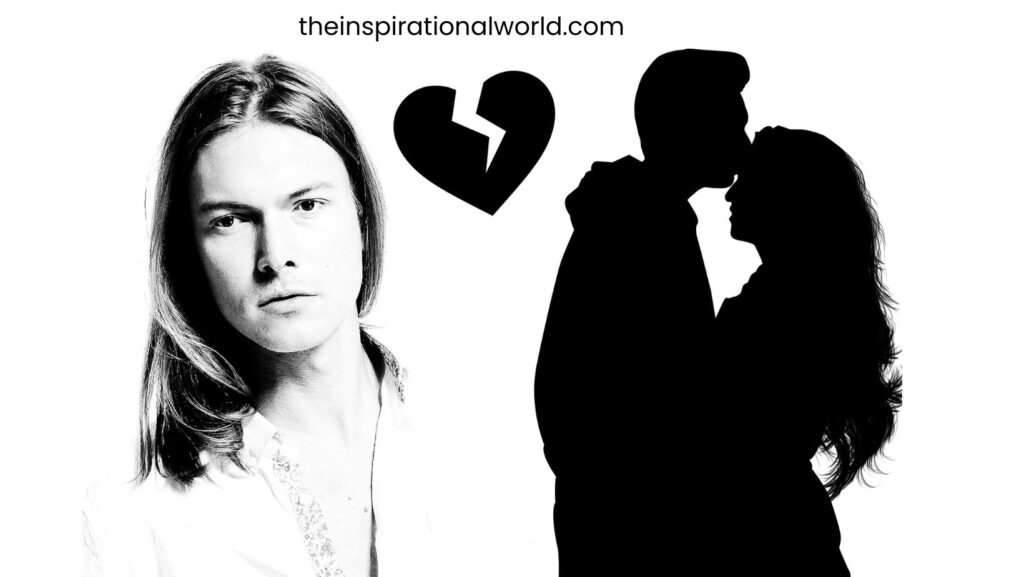A person’s physical, mental, or emotional health may be harmed by toxic relationships. These may happen in any kind of connection, whether it be a friendship, a romantic one, or even a familial bond. It’s crucial to recognize the telltale indications of a toxic relationship if you want to safeguard yourself from damage.
Some classic signs of a toxic relationship include the following:
1. Never-ending reproach and blame:
A never-ending loop of criticism and blame is one indication that a relationship is poisonous. Both partners in a healthy relationship accept responsibility for their actions and seek to address disagreements amicably and via compromise.
On the other hand, in a toxic relationship, one or both parties may consistently place the blame for issues at the other’s feet and refuse to accept accountability for their own behavior. This may set off a vicious cycle of negativity, anger, and animosity that may result in verbal, psychological, or even physical assault. If you are in a toxic relationship, it is crucial to be aware of these indications and to get assistance.
2. Lack of honesty and trust:

A toxic relationship might be identified, for example, by a lack of trust and honesty between the parties. Open communication and mutual trust allow partners in a healthy relationship to be vulnerable and honest with one another. However, in a toxic relationship, parties can be dishonest, secretive, or manipulative, which would undermine communication and trust. Feelings of betrayal, insecurity, and a lack of emotional connection may result from this. A relationship can become poisonous and harmful to the well-being of both people without honesty and trust.
3. Controlling conduct:
Controlling behaviour is one indication of a poisonous relationship. This might involve actions like instructing a spouse what to dress or how to act, cutting them off from friends and family, and keeping tabs on everything they do. Threats or manipulation to force a spouse to do something they don’t want to can also be considered forms of controlling behaviour.
In a relationship, controlling behavior can destroy trust and cause worry, fear, and low self-esteem. Additionally, it could produce an unbalanced power structure that’s difficult to escape. The first steps in dealing with controlling behavior in a toxic relationship might be recognizing these warning signals and getting assistance from close friends or a professional.
4. Isolation:
A poisonous relationship frequently manifests as isolation. One spouse may try to keep the other away from friends and family or reduce their overall social connections in a toxic relationship. The person could feel confined and isolated from sources of encouragement and approval outside the relationship as a result.
Isolation can take many different forms, such as restricting specific hobbies or social connections outright or discouraging the individual from spending time with friends or family. It can be a warning sign of an abusive or domineering relationship and make the solitary individual feel lonely, depressed, and anxious.
5. Manipulation:
A toxic relationship will often show signs of manipulation. It includes one person attempting to regulate or sway the ideas, emotions, or actions of the other person, frequently for their own advantage.
There are several ways to manipulate someone, including gaslighting, guilt-tripping, or withholding resources or compassion. It might be covert or overt, but at its core, it entails one person disrespecting the autonomy and agency of another.
Manipulation may make the other person in a toxic relationship feel lost, powerless, or insecure. They could experience anxiety or feel like they are always second-guessing themselves. Even though it might be challenging to spot manipulation, it’s crucial to be aware of the warning signs and get support if you think your relationship is toxic.
6. Misuse of the emotions:
A toxic partner may verbally or physically abuse their partner by using derogatory terms, yelling at them, or making fun of them. Due to this, the sufferer could suffer severe harm to their sense of value and low mood.
It is important to stress that not all toxic relationships are physically abusive, despite the fact that physical abuse can be a sign of a toxic relationship. If you’re being physically assaulted, it’s critical to get treatment immediately soon.
It’s crucial to recognize the telltale indications of a toxic relationship and take precautions to protect yourself. You can adhere to the guidelines below:
- Establish limits: If your partner is acting toxic, set boundaries and be clear about what is and isn’t okay in a relationship.
- Get assistance: If you’re in a toxic relationship, you need to ask friends, family, or a counselor for help. Talking to someone can help give you perspective and keep you motivated.
- Think about severing the connection: If the toxic behavior persists, it may be necessary to end the relationship. While it may be difficult, it is extremely important that you prioritize your own safety and well-being.
- Engage in self-care: When you are in a toxic relationship it is very important that you take care of yourself both physically and mentally. This may include doing activities you enjoy, being mindful, and asking others for help.
7. One-sided relationships:
When a relationship is one-sided—that is, when one person puts in all the work and the other does not reciprocate—that is one of the telltale indications of a toxic relationship. One person in this kind of relationship could feel continually inconsequential or ignored, while the other person might feel entitled or dismissive. The individual who is providing more than they are receiving may experience feelings of anger, dissatisfaction, and poor self-worth as a result of this. Both parties should put forth effort in a good relationship in order to feel valued and loved by the other.
8. Physical and emotional abuse:
Abuse, both verbal and emotional, is one indication of a poisonous relationship. While emotional abuse can entail manipulation, control, and verbal abuse, physical abuse can take the form of striking, pushing, or other bodily injury.
These abusive behaviors may be used by one or both parties to manipulate or hurt the other person in a toxic relationship, frequently creating a vicious cycle of isolation, guilt, and dread. The victim could feel imprisoned in the relationship or unable to end it, and they might also have poor self-esteem and feelings of worthlessness.
It’s critical to recognize these indicators of abuse and get assistance if you or someone you know is being subjected to physical or emotional abuse in a relationship. Tools are accessible to help those in need and to aid in security readiness.
In conclusion, Toxic relationships may be detrimental to a person’s physical, mental, and emotional well-being. It’s critical to spot the warning signs of a toxic relationship and take precautions to keep yourself safe. People in toxic relationships can find the strength to act and put their well-being first by establishing boundaries, getting assistance, and practicing self-care.
Related articles: Is Your Relationship Toxic? What to Look For
